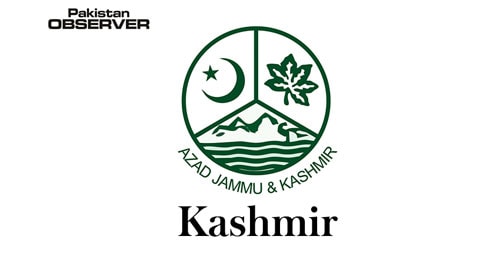Islamabad Institute of Conflict Resolution (IICR), in collaboration with Legal Forum for Kashmir (LFK), organised a webinar “Sopore Massacre 1993: The barbarity that still haunts”.
Over 60 civilians were martyred and more than 350 shops and other structures including residential houses were gutted on this day in 1993 after Indian soldiers set the Sopore town ablaze.
The panelists included Ms Sabah Aslam, Foun-der IICR, Dr Muhammad Sajjad Khan, Director KPRI (Kashmir Policy Research Institute), Prof. Dr Shaheen Akhtar, Associate Professor National De-fense University, Dr Muhammad Khan, Professor IIUI (International Islamic University Islamabad), and Dr Sheikh Waleed Rasool, Director IDDDS (Institute of Dialogue, Development and Diplomatic Studies). Musaib Manzoor, Program Coordinator, LFK, moderated the webinar.
Dr Sajjad, speaking to the panel, laid out the context by elaborating the history of the massacre. He added that Indian laws and legislation provide blatant impunity to the perpetrators. The Indian judicial system is highly militarised, abolishing every rule of law to protect humanity, said Dr Sajjad. Furthermore, he also mentioned that roads leading to justice were being deliberately blocked, and Indian forces’ personnel had been given a li-cense to kill while the world watches in silence.
Dr Sheikh Waleed Rasool gave an emotional account of the massacre as he was present in the same town during the carnage done by Indian forces. “It is a haunting memory that still haunts Kashmiri people,” said Dr Waleed Rasool. He fur-ther said the Kashmiris’ miseries started much be-fore the independence of Pakistan and India and are still being perpetrated by Indian forces through dra-conian laws.
Calling out the international community, Dr Ra-sool said, the world community is biased when it comes to Kashmir and international humanitarian law stands nowhere in the case of Kashmir.
He recommended that all those involved be held accountable for war crimes by identifying them and taking them to international forums. Moreover, it is the responsibility of the researchers and scholars to devise a strategy using data and building case stud-ies.
The third speaker on the panel was Prof Dr Mu-hammad Khan, who emphasised that Kashmir fought for Pakistan and is still fighting. At the same time, a complete cover is being provided to the In-dian forces to engage in violence. Adding more, Dr Khan said that massive human rights violations are happening every day in Kashmir; from using rape as a weapon to staged encounters, Kashmir is witness-ing the horrors, yet the international community is turning a blind eye to it.
The Kashmiris have the right to self-defence under the UN charter, said Dr Khan. While giving recommendations, Dr Khan said there is a need to have a systematic and organised collection of evi-dence and documentation of case studies that can be presented. History needs to be preserved, remarked Dr Khan. Furthermore, he said that human rights activists are being muzzled by the Indian state, and it should be brought to the world.
The last speaker on the panel was Prof. Dr Sha-heen Akhtar. Dr Akhtar overviewed the Indian atrocities upon Kashmiris for decades and are still going on. She said every time Kashmiris’ voice for their fundamental rights; there comes systematic violence from Indian forces with absolute impunity from the Indian government.
Dr Akhtar further added that India was advanc-ing in their extremist ideas and implementation of Hindutva ideology through exterminating Muslim identity. If the world does not act at the right time, there would likely be more incidents of systematic and organised massacres, said Dr Shaheen.—KMS










